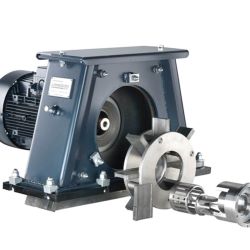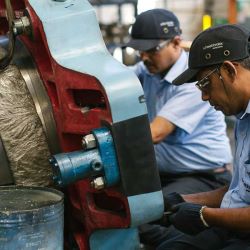Company Profile
Since 1862, Diehl Metering has been making high-precision measuring devices for water, heat, gas and electricity. Today, even the most sophisticated, networked measuring technology is still based around a trusted piece of hardware: the meter.
Some of the bigger examples of this species, bulk water meters, are manufactured in Ansbach, Germany, starting with their relatively heavy, cast iron bodies. After casting, these meter bodies are cleaned in a Wheelabrator hanger-type blast machine.


